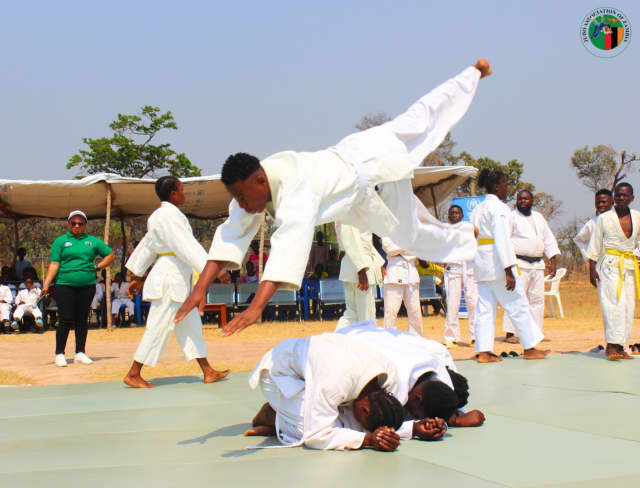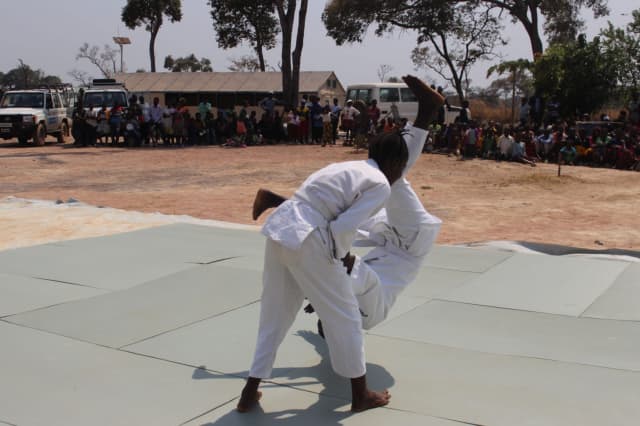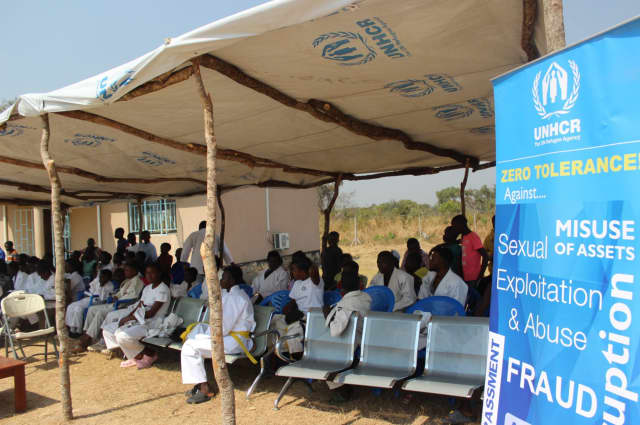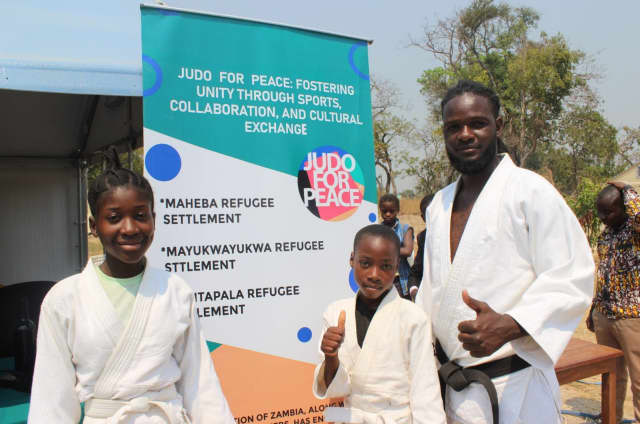The objectives of the programme under the aegis of the IJF and its Judo for Peace Commission, aim to strengthen social cohesion and the empowerment of refugee populations and host communities.
At the launch ceremony, Dennyson Chishimba, the district administrative officer, said, "This collaboration demonstrates how sport can be a powerful force for good. It not only facilitates the integration of refugees but also strengthens the social fabric of both refugee and host communities, reducing tensions and providing constructive outlets for the energy and talents of young people. We anticipate that this launch will play a significant role in enhancing community cohesion, reducing conflict, and providing pathways for skill development. These skills will be beneficial not only within the realm of sports but also in other aspects of life, contributing to the overall wellbeing and development of participants."
Mabvuto Ng'uni, Zambia Judo Association (ZJA) Secretary General, representing President Alfred Foloko, said, "An objective of providing judo to all refugee camps has been achieved, offering the refugees a unique opportunity to practise the sport. We are grateful to the Commissioner for Refugees (COR) and United Nations High Commissioner for Refugees (UNHCR) for allowing us to establish this programme in the three camps."
Mabvuto Ng'uni also highlighted the importance of the recent Tripartite Memorandum of Understanding (MoU) signed between UNHCR, JAZ and NRC, which formalises the sustainability of the Judo for Peace programme in Meheba, Mayukwayukwa and now Mantapala, and acknowledged the support the programme has received from the IJF as well as the Norwegian Olympic and Paralympic Committee and the Confederation of Sports (NIF).
During the ceremony, Solomon Mulenga, Refugee Officer, delivered a speech on behalf of the Commissioner for Refugees, Professor Prosper M. Ng'andu, "We are proud to work with the Judo Association of Zambia in promoting human rights and dignity for all persons of concern. Judo offers valuable opportunities for skill development which can be translated into coaching, leading community initiatives or even pursuing employment within the broader community, positioning refugees as leaders and contributors within the community."
The event featured judo demonstrations by athletes from Mantapala and Mayukwayukwa camps and important messages about HIV prevention and other pressing issues such as gender-based violence.
UNHCR official Ireen Babu highlighted the uniqueness of the initiative, "This is the first time we are having such an event here, promoting sport for social protection activities for nearly 4,000 young people. It’s a rare opportunity and I urge the youth and their parents to embrace it fully."
Roberto Orlando, Deputy Director of the IJF Judo for Peace Commission, who represented the institution, stressed the importance of access to sport as a fundamental human right, even for those who have been displaced from their country. "Having judo in the settlement means giving purpose to many, empowering communities and fighting exclusion. Judo was originally created as an education system and today it continues to serve that purpose by fostering harmony and helping combat gender-based violence."
In addition to Zambia, now with its three camps in which judo is developing, the entire region benefits from the values of judo, since neighbouring Malawi (Dzaleka refugee camp) and Zimbabwe (Tongogara refugee camp) also have Judo for Peace programmes that work very well. In South Africa, Judo for Peace South Africa, led by Roberto Orlando, is also a development model that benefits refugees as well as local populations. By bringing judo and its values to the field, the IJF and its partners thus contribute to the creation of the conditions for a more just society.




